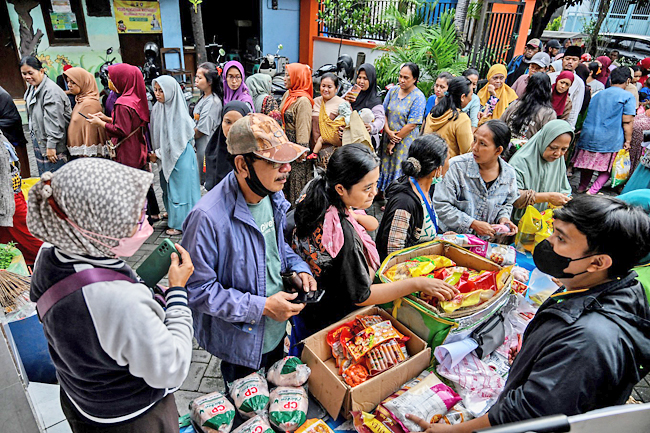ANN/THE JAKARTA POST – Inflation surged to 3.05 per cent year-on-year (yoy) in March, driven by increased food prices during Ramadhan, as reported by Statistics Indonesia (BPS).
This is the first time since September last year that inflation has exceeded three per cent, although it remains within Bank Indonesia’s (BI) target range of 1.5 to 3.5 per cent for the year.
Acting BPS Head Amalia Adininggar Widyasanti said the rise primarily increased in rice, chicken and chilli pepper prices due to heightened demand during Ramadhan, which began on March 12.
“The monthly inflation rate in March 2024 is relatively higher than the previous month and the same month last year,” said Amalia.
Eggs, chicken, and rice were significant contributors to inflation on a monthly basis in March. The delay in the planting season also pushed up rice prices, exacerbated by factors like the El Niño weather phenomenon and global restrictions on rice exports since last year.

Volatile food prices saw a substantial 10.3 per cent yoy increase in March, following an 8.47 per cent yoy rise in the previous month, moving further from BI’s five per cent target increase for the year.
Tobacco and gold were the fourth and fifth-largest contributors to inflation in March, according to BPS data.
Economist Irman Faiz from private lender Danamon views the inflation surge as temporary, linked to seasonal demand during Ramadhan and ahead of Hari Raya festivities.
“Price pressures might slow down in April, coinciding with the upcoming harvest season,” Irman said in a statement on Monday, adding that he expected inflation to linger around three per cent yoy from March to April.
The lender projects Indonesia will maintain its inflation at 2.9 per cent yoy at the end of this year, considering the sustained moderation in input costs, which should keep core inflation benign throughout the year, Irman said.
Chief economist Andry Asmoro of state-owned lender Bank Mandiri pointed out that usually transportation contributed to higher inflation during Ramadhan, but in March, this sector only saw 0.99 per cent yoy inflation, as air fares declined.
Private lender Bank Permata’s chief economist Josua Pardede, said in a statement that there could be a risk that the short-term high inflation may be prolonged.
It is expected to ease gradually as seasonal demand wanes in May and the impact of El Nino subsides, but more inflationary pressure may arise in the second half of this year.
“On the other hand, there could be more pressure coming from the implementation of excise on sweetened drinks and plastics,” Josua said.
Josua projects inflation to hover at 3.08 per cent yoy at the end of this year, up from the 2.81 per cent yoy recorded last year.





